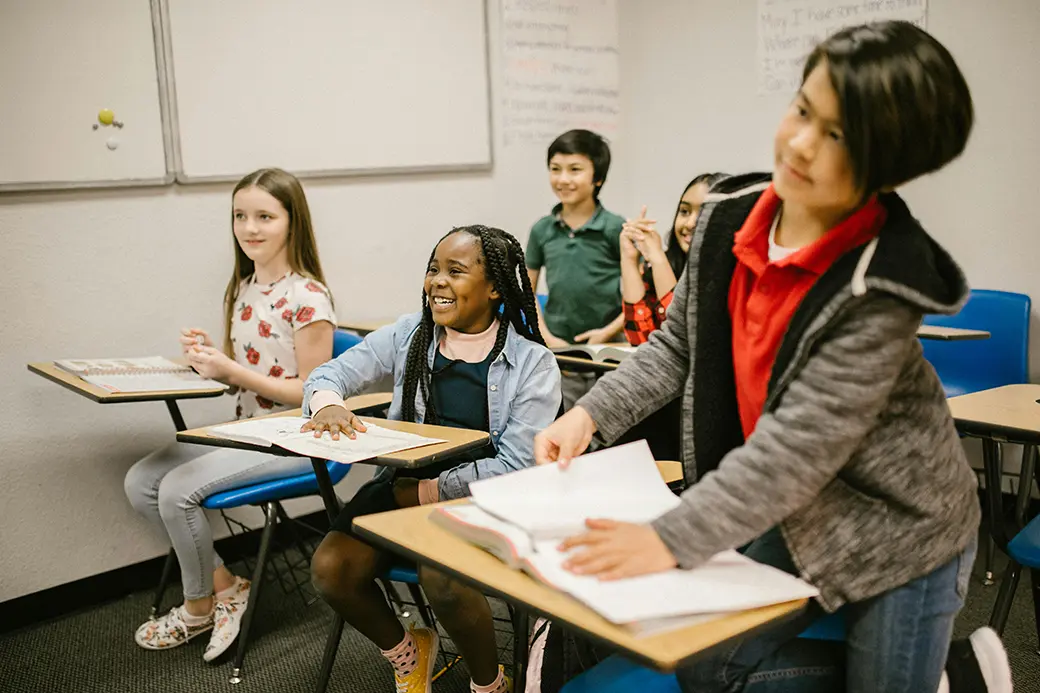For schools supporting learners with special educational needs, tracking progress in a meaningful, personalised way can be a challenge, especially when that progress extends beyond traditional academic achievements. At Manor Green College and TreeHouse School, staff have found that combining the structured clarity of the Skills Builder Universal Framework with the visual storytelling power of Earwig offers a powerful solution.
Together, these tools help to build confidence, independence, and a sense of achievement in every learner whose development might otherwise go unnoticed.
Creating space for essential skills to shine
At the heart of this approach is a shared commitment to developing essential life skills. Manor Green College, a specialist setting for young people with a range of learning needs, wanted a tool that could bring structure to their focus on employability, independence, and personal growth. The Skills Builder Universal Framework offered just that: a framework that breaks down eight essential skills into manageable, teachable steps, from Listening and Speaking to Aiming High and Problem Solving.
For learners at TreeHouse School, where many pupils have autism and moderate to severe learning disabilities, the team adapted the Universal Framework into a bespoke version focused on five key skill areas, including Communication, Creativity, and Knowing Myself.
Rossana Caglia, Employment Specialist at Ambitious about Autism, noted “We realised our learners would benefit more from a tailored approach… by creating our own simplified version, we made it much more accessible.”
To make that progress visible, both schools turn to Earwig. With its ability to capture photos, videos, and audio in real-time, Earwig allows staff to document progress in ways that traditional assessment tools can’t, especially for non-verbal learners or those who respond best to visual cues.
In the classroom: from plans to practice
In practice, combining the two platforms means more meaningful learning and more engaged students.
At Manor Green, teachers use the Skills Builder Universal Framework to identify relevant skill steps and incorporate them into everyday lessons. In one classroom, that might mean students recognising how they’ve used Problem Solving during a science experiment. In another, it could be an explicit Skills Builder lesson on Teamwork, using ready-made resources to plan and deliver activities.
Meanwhile, Earwig enables staff to quickly capture evidence of these moments and tag them to individual student goals, EHCP (Education, Health and Care Plan) outcomes, or curriculum areas. “We can upload photos or short videos during activities,” explains one staff member. “It means we’re not just planning with more purpose, we’re reporting and reflecting with more clarity too.”
At TreeHouse, a simple task like classroom cleaning becomes a skill-building opportunity. With structured stations, visual prompts, and a focus on autonomy and belonging, learners practise core behaviours like working alongside a peer or completing tasks independently. Observations and media are uploaded to Earwig and linked to specific essential skill steps that turn everyday moments into rich learning journeys.
Building confidence and independence
The impact has been tangible, on both learners and teachers.
Staff at Manor Green describe a more cohesive, shared language around essential skills development that is used across the curriculum. Students can identify what they’re learning and why, and increasingly take ownership of their progress. This has boosted confidence, improved emotional regulation and helped students work more independently across the day and not just in lessons.
At TreeHouse, learners have become more engaged and proud of their efforts. “They’re building pride even without verbal language,” says Caglia. “We had one pupil who was initially reluctant to take part in cleaning tasks. With support, he went from not engaging to independently initiating the activity. We captured that journey on Earwig, and his smile says everything.”
Both schools have also seen the value in using this approach to inform multi-agency planning and reviews. Earwig’s visual timelines and reporting tools help staff, families, and therapists align around the same goals and celebrate small but significant steps forward.
Advice for other schools: start small, stay focused
For schools considering a similar approach, both teams emphasise the importance of starting small. “We trialled Skills Builder and Earwig first in our FE (Further Education) classes before rolling it out more widely,” said Gareth Court, Head of FE at Manor Green. “That helped us clarify our purpose and make sure it aligned with our students’ needs.”
Adapting the Universal Framework to fit your context is also key. “Don’t be afraid to modify it,” adds Caglia. “The Universal Framework gives you direction, and Earwig gives you evidence. Together, they help you reflect, adapt, and really focus on what matters.”
A powerful partnership for inclusive education
By combining a structured, skill-building approach with flexible, visual documentation, Skills Builder and Earwig are enabling specialist schools to better recognise and celebrate what progress really looks like. For students, it means clearer goals and greater confidence. For staff, it means more effective planning and stronger collaboration.
And for both, it’s a way to ensure that essential skills don’t just stay on the Universal Framework, they come to life, every day.





